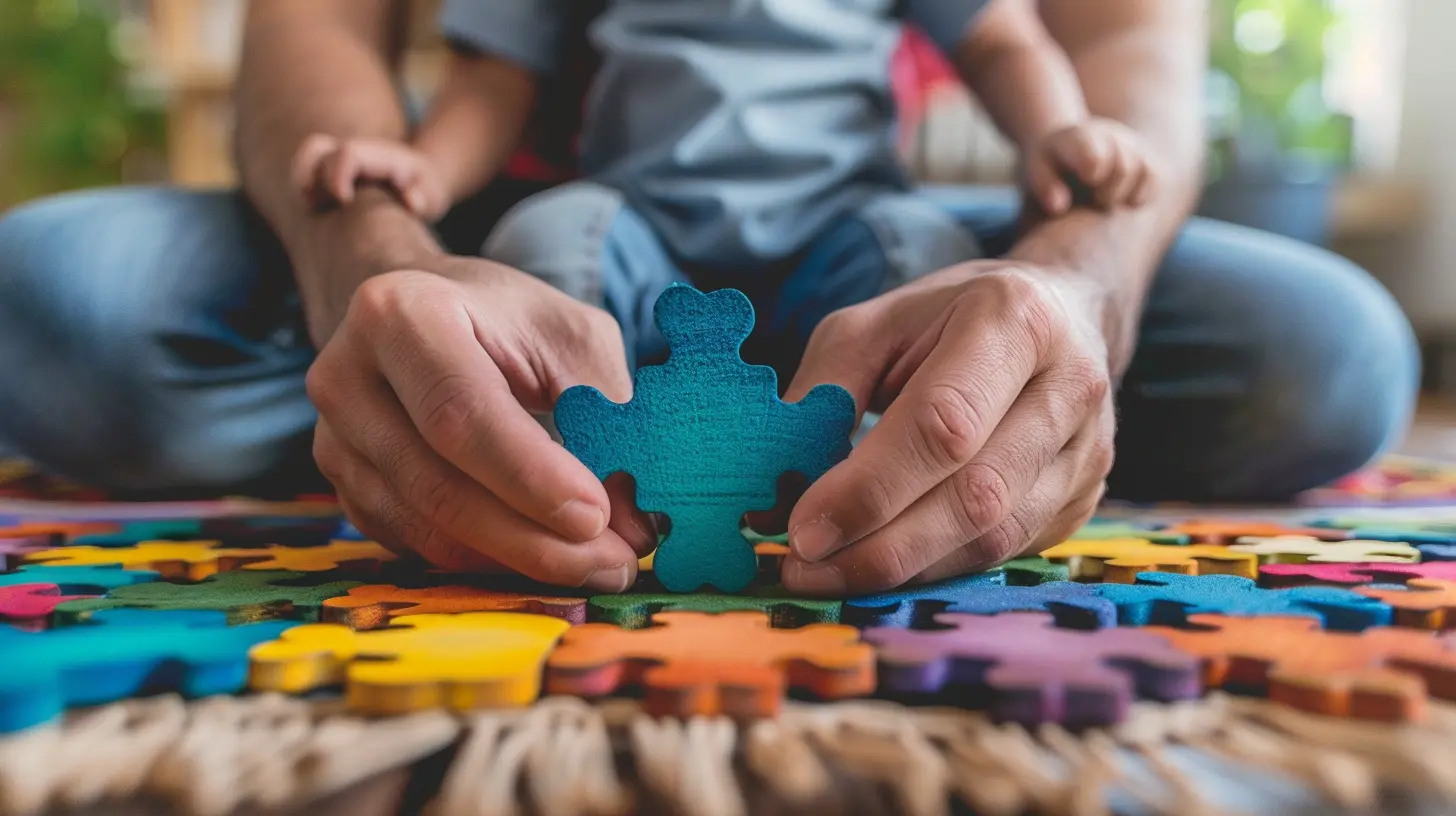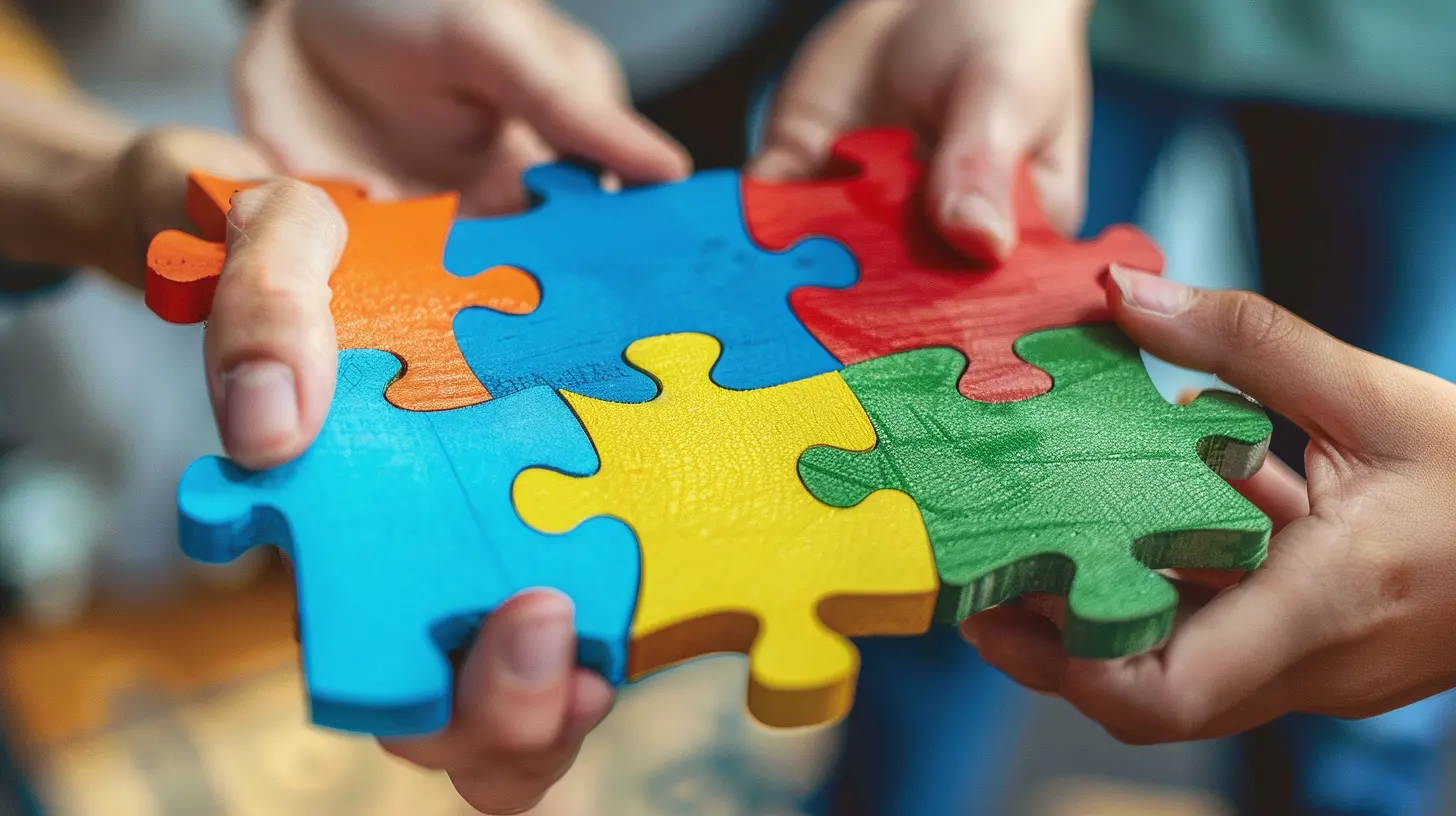The Role of Family Support in Managing Learning Disabilities
11 May 2025
Learning disabilities can present significant challenges for children and their families. These challenges are not just limited to academics—they affect confidence, social skills, and overall well-being. But here's the good news: family support plays a crucial role in helping children navigate these difficulties.
When parents, siblings, and extended family members step up to support a child with a learning disability, their encouragement and involvement can make all the difference. Let's break down why family support matters, how it impacts children, and what strategies families can use to provide the best possible help.

Understanding Learning Disabilities
Before diving into the role of family support, let's clarify what learning disabilities are. Learning disabilities are neurological disorders that affect a person's ability to acquire, process, or retain information effectively. Some common types include:- Dyslexia – Affects reading and language processing.
- Dyscalculia – Affects math skills and number comprehension.
- Dysgraphia – Impacts writing skills, making it difficult to form letters or structure thoughts on paper.
- Auditory and Visual Processing Disorders – Impact how the brain interprets sounds and visual cues.
- ADHD (Attention-Deficit/Hyperactivity Disorder) – While not a learning disability itself, ADHD often coexists with learning challenges.
These conditions don't reflect a child's intelligence or effort. In fact, many children with learning disabilities are highly intelligent and creative. The real challenge is finding ways to help them learn differently—this is where family support becomes vital.

Why Family Support Matters
Imagine you're struggling with something—maybe a tough math problem, a frustrating video game, or even learning a new language. Now, picture going through that challenge alone, with no one cheering you on or offering guidance. Sounds tough, right?For children with learning disabilities, that struggle is an everyday reality. However, when family members provide support, encouragement, and understanding, they create a safety net that helps the child build confidence and perseverance.
Boosting Self-Esteem and Confidence
Many children with learning disabilities face feelings of frustration, embarrassment, and even shame when they struggle with tasks that seem easy for their peers. If these emotions aren't addressed, they can lead to low self-esteem and an overall dislike of school or learning.When parents and siblings offer encouragement, remind the child of their strengths, and celebrate small victories, they help build a more positive self-image. A simple "You're doing great!" or "I love the way you solved that problem" can go a long way.
Providing Emotional Support
School can feel overwhelming for children with learning disabilities. Homework, tests, and classroom activities may lead to anxiety and stress. But a strong family support system ensures that home is a place of comfort and reassurance.Parents can help children express their feelings and frustrations by listening without judgment. Sometimes, all a child needs is a hug, a reassuring word, or a safe space to vent.
Encouraging a Growth Mindset
A growth mindset—the belief that abilities can improve with effort and time—is incredibly powerful for children with learning disabilities. When parents emphasize progress over perfection, children learn to embrace challenges instead of fearing failure.Instead of saying, "You're just not good at math," try, "Math may be tricky, but with practice, you'll get better!" These small shifts in language can change the way a child views their abilities.

Practical Ways Families Can Offer Support
Understanding the importance of family support is one thing, but how can families actively help? Here are some practical strategies:1. Educate Yourself About the Learning Disability
Knowledge is power. The more parents, siblings, and relatives understand about a child's specific learning disability, the better they can advocate and support them. Reading books, attending workshops, or joining support groups can provide useful insights into effective strategies.2. Create a Structured Routine
Children with learning disabilities often thrive on structure and predictability. Establishing a consistent daily routine for homework, playtime, and bedtime helps them feel secure and reduces stress.3. Use Multi-Sensory Learning Techniques
Each child learns differently. Many children with learning disabilities benefit from multi-sensory learning, which involves engaging multiple senses—touch, sight, sound, and movement.For example:
- Use hands-on activities (like counting with physical objects for math).
- Incorporate visual aids like charts and diagrams.
- Read aloud or use audiobooks for children with dyslexia.
4. Break Tasks Into Smaller Steps
Big assignments can feel overwhelming. Parents can help by breaking tasks into smaller, manageable steps and setting achievable goals. This can make completing homework or learning new skills feel less daunting.5. Communicate with Teachers and Schools
Families should work closely with teachers and school staff to ensure that children receive the necessary accommodations and support. Many schools offer Individualized Education Programs (IEPs) or 504 Plans, which provide tailored strategies to help children succeed.Parents can also advocate for extra time on tests, access to assistive technology, or alternative learning methods.
6. Encourage Social Interaction
Children with learning disabilities may struggle with social skills or feel isolated from their peers. Encouraging them to join clubs, sports, or hobby groups can help build confidence and friendships.At home, practicing social skills through role-playing conversations or problem-solving scenarios can also be helpful.
7. Celebrate Small Wins
Every milestone—no matter how small—deserves celebration. Whether it's finishing a book, solving a math problem, or staying focused for an extended period, acknowledging progress keeps children motivated.A reward system or simple words of encouragement like, "I'm so proud of you for sticking with that!" reinforces positive behavior and effort.

Overcoming Common Challenges
Even with strong family support, managing a learning disability isn't always smooth sailing. Here are some common challenges and tips to overcome them:1. Frustration and Burnout
Both parents and children can feel frustrated at times. Taking breaks, practicing patience, and using relaxation techniques (like deep breathing or mindfulness) can help.2. Comparisons to Other Kids
It's natural for parents to compare their child to others, but focusing on individual progress rather than external benchmarks is more beneficial. Every child's journey is unique.3. Parental Stress and Guilt
Parents may feel guilty or stressed, wondering if they're doing enough. Seeking support from counselors, therapists, or parent groups can provide reassurance and guidance.The Lifelong Impact of Family Support
The support of a loving family doesn't just help a child succeed academically—it builds resilience, self-worth, and a positive outlook on life.Many successful individuals, including Albert Einstein, Whoopi Goldberg, and Steven Spielberg, had learning disabilities. What helped them overcome their struggles? Support from those who believed in them.
By providing encouragement, patience, and resources, families play a key role in shaping a child's future. At the end of the day, it's not about "fixing" the learning disability—it's about helping the child thrive in their own unique way.
all images in this post were generated using AI tools
Category:
Learning DisabilitiesAuthor:

Janet Conrad
Discussion
rate this article
3 comments
Harper McGuffey
Family support is invaluable in overcoming learning disabilities. Together, we can create a nurturing environment where strengths are celebrated, resilience is built, and potential is unlocked!
May 23, 2025 at 2:43 PM

Janet Conrad
Thank you for your insightful comment! I completely agree—family support plays a crucial role in nurturing strengths and fostering resilience in individuals with learning disabilities. Together, we can make a significant difference!
Quill Martin
Family support transforms challenges into success.
May 13, 2025 at 3:14 AM

Janet Conrad
Absolutely! Family support is crucial in overcoming obstacles and fostering success for individuals with learning disabilities.
Daphne Kearns
This article highlights the crucial impact of family support on navigating learning disabilities. It's fascinating to consider how emotional and practical assistance can shape a child's resilience and success. I'm eager to learn more about specific strategies families can use to foster this supportive environment!
May 11, 2025 at 4:38 PM

Janet Conrad
Thank you for your thoughtful comment! I’m glad you found the article insightful. I’ll be sure to include specific strategies in future discussions to help families create a supportive environment.



